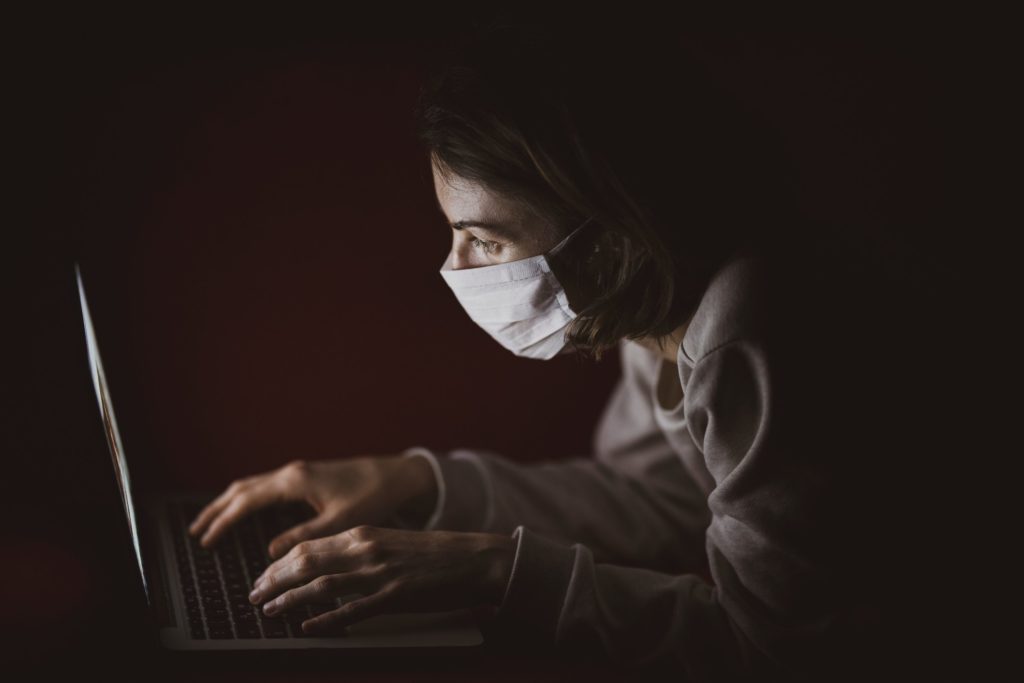Article written as part of a presentation (10 min) at the Globethics.net event “
Building New Bridges Together 2022 – Ethics and Values at the Heart of Quality Education
“in Geneva, October 17-19, 2022.
Youth Mental Health
To begin, let’s agree on a definition of mental health:
"Mental health is a state of well-being in which a person can achieve. It refers to the ability to think and act to enjoy life, meet different challenges, be productive and contribute to one's community. Mental health is related to the ability to manage one's thoughts, emotions, behaviors and relationships with others."
— Santé, bien-être et réussite éducative des jeunes | Gouvernement du Québec
The target audience for this intervention is what we now call Generation Z, i.e., young people born between 1997 and 2010 (ages 15-25).
Generation Z represents people who have always known a world with a strong presence of computers and the Internet. Compared to previous generations, Generation Z would define itself by its relationships through virtual platforms rather than real relationships.
— Wikipedia
It is also important to know that young people are very critical of themselves regarding their mental health, especially because of the pressure of social networks where there is little room for imperfection to get likes. Generation Z is on a real quest for recognition!
What about the next Generation Alpha, the demographic cohort that succeeds Generation Z (children born between 2010 and 2020)?
Many members of Generation Alpha grew up using smartphones and tablets as part of their childhood hobbies, and many were exposed to devices as soothing distractions or educational aids. Screen time for infants, toddlers, and preschoolers has exploded in the 2010s. Some 90% of young children were using a handheld electronic device by age one; in some cases, children began using them when they were only a few months old. Being born into an environment where the use of electronic devices is ubiquitous comes with its own challenges: cyberbullying, screen addiction and inappropriate content.
— Wikipedia
Numerous recent studies conclude that the number of youth struggling with mental health issues has recently increased.

Results of three recent studies
Despite the importance that many societies place on youth, it is a difficult time to be young. In May 2022, the McKinsey Health Institute (MHI) surveyed 6,000 Generation Z respondents in ten European countries (France, Germany, Great Britain, Holland, Italy, Poland, Spain, Sweden, Switzerland, Turkey) to understand their views on mental health, particularly in the context of an unprecedented moment of global and regional crises. MHI’s findings are consistent with what respondents in the U.S. reported in January 2022: Generation Z reports poorer mental health compared to older generations, including millennials (ages 25-40). Specific external triggers are at play: nearly half of Gen Z respondents cite a high level of distress due to climate change, while 41% list distress related to the war in Ukraine. More than a quarter reported that COVID-19 caused them great distress.
Between 70 and 89 percent of Gen Z students surveyed say their school provides behavioral health resources, but there is room for improvement, as about 30 percent say the school does not provide resources or they do not know if or what resources are available at the school.
— MHI
Generation Z respondents report greater use of their school's digital behavioral health resources, such as telehealth and apps. However, they also say that these resources are less useful than online mental health trainings and in-person resources, such as peer support networks, workshops on managing behavioral health problems and counseling.
— MHI
According to a study conducted in June 2021 by Unicef, 37% of adolescents in Switzerland show moderate or severe signs of an anxiety disorder and/or depression. This is directly related to the Covid-19 pandemic. 47% of those surveyed said their mental health was worse than before the pandemic.
— Unicef
Investing in the prevention of mental suffering should be in the interest of society as a whole, including from an economic perspective.
— Unicef
Let’s also quote the conclusion of the Obsan (Swiss Health Observatory) mental health report, “Hospitalizations of children and adolescents in psychiatric clinics have been steadily increasing, already since 2012.”
Two factors affecting youth mental health

The Covid-19 pandemic crisis
Many studies have been conducted over the past 2 years on the impact of the Covid-19 pandemic on the mental health of youth.
The results of a European Commission study dated 12.10.2022 conclude that “the COVID-19 pandemic posed a serious threat to mental health, particularly among young people. While the mental health of young Europeans was already deteriorating before the pandemic, there has been a sharp increase in rates of depression, tension and anxiety among young people during the COVID-19 crisis. Concern for the health of family members, financial hardship, and disruption of education and social relationships left many young people frightened, frustrated, and uncertain about their future. In addition, the mental health of youth has been disproportionately affected compared to other age groups.”
The COVID-19 pandemic demonstrated that youth mental health depends on a variety of interrelated factors such as the availability of counseling services in schools, digital skills to balance online and offline activities, job security, and participation in social and recreational activities. The impact of the pandemic on youth mental health will continue over the long term, but good practices have emerged that can pave the way for further action, for example, in the areas of education, sport, recreation and psychosocial support.
— Commission Européenne

The use of smartphones and tablets
Numerous studies also show that the use of digital technology and the mental health of young people are intimately linked.
For some doctors, intensive use, i.e. more than two hours a day in children under 17, would have consequences on their health. One in three young people exceed this limit. Studies tell us that there is indeed an association between increased mental health problems and increased use of screens and social networks, as recently noted in the report Smartphones and Social Media - Impacts on Youth Health, by the Commission on Ethics in Science and Technology
— Québec
Should we be concerned? This obviously depends on the use that is made of all these hours and the opportunities that can be derived from these uses.
Is this too alarmist? Although some doctors do denounce the negative effects of digital technology -addiction, anxiety, attention and concentration disorders- there are many positive effects that are less talked about: Internet is a source of learning and communication… and connects young people in remote areas.
The relationship between digital technology and psychological well-being is therefore complex… but could we make screens become allies of our health?

The experience of a therapist
One of the founders of HU CARE is a therapist(acupuncture, acupressure, reiki, energy treatments, meditation, coaching…) and has experience in accompanying young people. It has been able to develop an action of reinforcement of the factors of robustness or individual resilience, which are defined in relation to the individual and concerns the being that one is with oneself and with others.
The action of a therapist completes the other actions offered to the youth. The work carried out concerns the feeling of Self, Self-esteem, identity, the feeling of belonging, becoming, the feeling of accomplishment, the place one has, the contribution one makes.

Conclusion
In the school context, the actions to be prioritized should aim at making young people feel good, safe, valued, supported and able to adapt to various situations.
Have we really set the course for child, youth and family mental health policy to adequately support young people (especially in Switzerland)?
One of the perspectives would be to network the private and public sectors through actions such as Globethics. net , bringing together the skills and solutions of different local actors.
Sources
-
Mental health in Switzerland: Young people suffer more and more from mental disorders | Tribune de Genève (28.04.2022)
-
Mental health and Covid-19 – The spleen of the idle young Romands | 24 heures (03.05.2022)
-
Coronavirus crisis – Number of children needing assistance soars | 24 hours (22.04.2021)
-
What about the mental health of our youth? | unicef.ch (November 2021)
-
CQFD – RTS.ch – The mental distress of Generation Z (03.10.2022)
-
Mental health – ÉKIP: Health, well-being and educational success of young people | Government of Quebec (September 2021)
-
The digital and mental health of young people | Agence Science-Presse (11.03.2020)
-
The impact of the Covid-19 pandemic on the mental health of young people | EPALE (European Commission – 12.10.2022)
-
To go further
-
Mental health training to better help loved ones – rts.ch – Switzerland (10.10.2022)
-
Mental health of minors: “Psychic suffering increases in the toddlers” | 24 heures (21.04.2022)
-
Mental of the young people and Covid-19 – The frequentation of the forum of Ciao.ch exploded in two years | 24 heures (07.02.2022)
-
Adolescent mental health: Santé publique France reruns and reinforces its #JenParleA campaign (14.03.2022)
-
Coronavirus Report Update: Children and youth need our support now! | Pro Juventute (November 2021)
-
Impact of screens on children: 4 things to know | Agence Science-Presse (23.03.2017)
-
Excerpt Les ravages des écrans: des faits irréfutables | La Presse (01.03.2020)
-
GUIDE FOR PROFESSIONALS ON THE USE OF SCREENS (APAN) | GREA – Groupement Romand d’Etudes des Addictions (03.06.2020)

